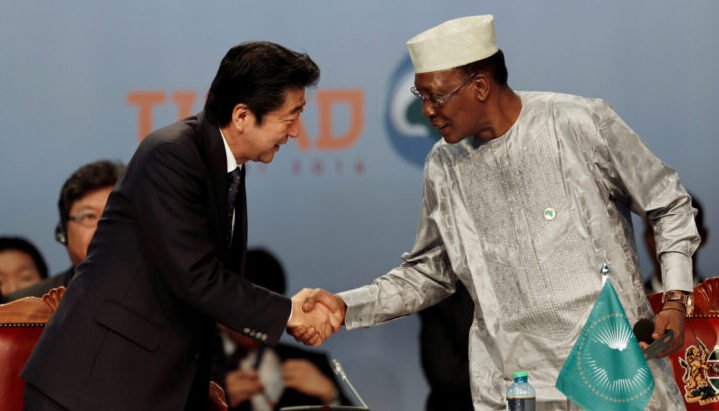[ad_1]
Miyashita, deputy director-general of MOFA’s African affairs department, says that this year a priority for Japan’s presence on the continent is working hard to strengthen connectivity.
Connectivity has many meanings in this relationship. MOFA and the Tokyo International Conference on African Development 8 (TICAD8) are focsuing on numerous infrastructure projects over the next year, some of which will not be disclosed until the TICAD summit on 27-28 August in Tunisia. Tokyo uses its Africa summit to build up diplomatic links and set the agenda for its cooperation with the continent.
Roads to success
According to Miyashita, the main focus points over the next year will be on transport corridors: East Africa’s Northern Corridor development project centring on Kenya, Tanzania and Uganda; the Nacala development project linking Mozambique, Malawi and Zambia; and the West Africa Growth Ring covering Ghana and Côte d’Ivoire. Other Japan-backed projects will involve improving roads, water supply systems and programmes in education and healthcare.
Miyashita says: “We do not focus on a single project. We like to have a comprehensive approach to infrastructure in Africa.”
MOFA’s approach has two major focuses: the physical ‘hardware’ of projects, such as financing; and developing ‘software’, including training and programmes to digitise old systems and increase productivity.
Many foreign investors target the continent for its young population – 22.7% of the world’s youth population – and opportunities to expand its digital outreach. MOFA argues that private investment is the way forward. Miyashita says: “The importance of the private sector as a good implementing partner in Africa cannot be understated. Africa needs more private sector investment – it is essential for development in Africa.”
Taking a jab at it
Many global development projects were slowed due to Covid-19. However, according to Miyashita, there has not been much change in MOFA’s development agenda post-Covid. He says: “Some Japanese people were forced to evacuate due to Covid-19. They have come back and restarted their projects, so we haven’t seen much of an impact from Covid-19. We have a roadmap for our African infrastructure projects.”
Throughout the pandemic, Japan remained a significant contributor to the COVAX project, led by CEPI, GAVI, the World Health Organisation and the United Nations Children’s Fund, in an attempt to monitor and ensure vaccine equity when more economically developed countries were hoarding vital vaccine stocks.
In a statement at the time, the Japanese government said: “In order to overcome Covid-19, it is important to promote equitable access to vaccines not only in Japan but also throughout the world. Japan will continue to work towards securing equitable access to safe, effective and quality-assured vaccines through various support, responding to the needs of developing countries and the world, in cooperation with relevant countries and international organisations.”
Implementation hurdles
However, an investigation by The Bureau of Investigative Journalism revealed that COVAX contributed just 5% of all vaccines administered globally, and vaccine delays from the effort may have pushed vaccine hesitancy in countries such as Nigeria and Namibia.
Japan hosted the first COVAX summit last year. “We are kind of the promoter for COVAX,” says Miyashita, despite the criticism of the project. “We’ve seen some doubt and a slightly negative assessment of COVAX on the record in terms of achievement. But without COVAX, access to vaccination would be fairly worse. […] I believe that COVAX has played a role in securing or trying to secure vaccinations globally.”
So far, Japan has donated $1bn to COVAX and has provided technical support and medical staff and equipment to many African countries. In April 2022, Prime Minister Fumio Kishida pledged to donate a further $500m to COVAX, “taking into account the circumstances surrounding this replenishment and relevant efforts”.
More big-ticket announcements are expected at TICAD8, Japan’s big Africa summit that is held every two years, in August.
[ad_2]
Source link
